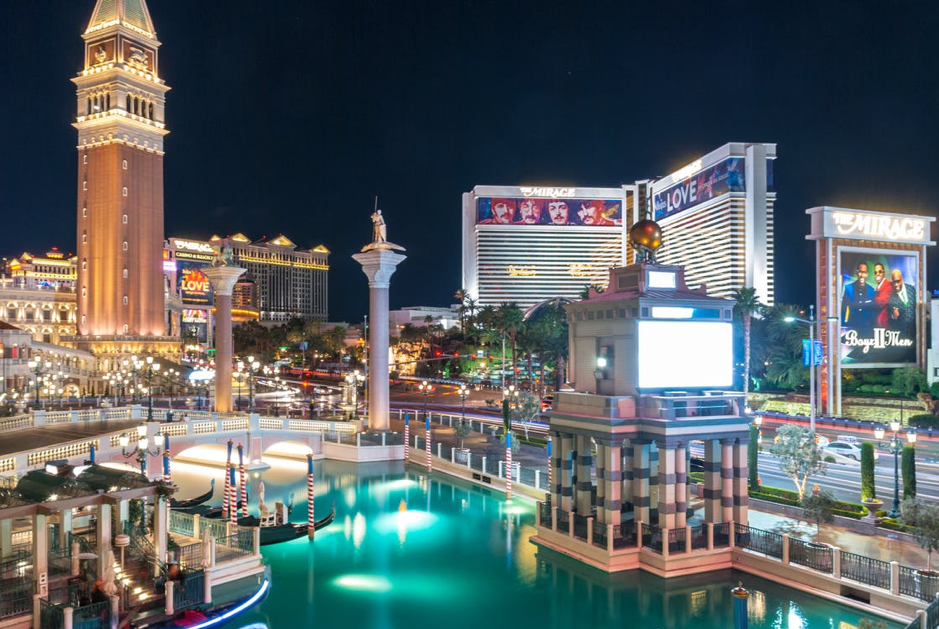
America has a long history of gambling, dating back to the first colonists in the 17th Century. The first thirteen colonies were in part funded by lotteries, with an estimated 392 at their peak, including state run lotteries and privately owned ones. By the late 1700s the British Crown placed restrictions and taxation on lotteries fuelling tensions that led to the American Revolution.
New Orleans became a centre for lotteries, and eventually riverboats, as the only safe haven for gambling. On a boat the captain was law, and operators were able to bypass the increasingly tougher laws restricting gambling that came about after the Protestant revivals in the 19th Century, that lasted through to the mid-20th Century.
The Great Depression led to Nevada legalising gambling in 1931, and remains to this day one of the world centres of gambling, with Las Vegas generating US$11.6 billion in revenue at its peak in 2018. Echoing the success on the West Coast, Atlantic City in New Jersey also set itself up as a gambling centre in the 1970s, and the Indian Gaming Regulatory Act of 1988 provided a framework for casinos operating on Indian Reservations.
However, The US has been somewhat slow in keeping pace with the (majority of) rest of the world, and there is huge potential for growth in the market. In the last few years, a coming together of circumstances has led to an opening up of the US gambling market:
- the emergence of online gambling
- local pressure from operators and customers
- Overturning of PASPA (1992)(Professional and Amateur Protection Act) 2018 (allowing sports betting to take place)
- Reinterpretations of the Federal Wire Act 1961
- Modifications to the Unlawful Internet Gambling Enforcement Act 2006 to provide a regulatory framework (2010)
- increased cultural and social acceptance of gambling
Since 2010, states have slowly been taking steps towards legalising online gambling, recognising that those who wish to gamble will do so using off-shore providers or illegal betting operators. And even though the laws around gambling may vary from state to state, gamblers have a variety of options to navigate the world of online gambling, ensuring compliance with the law state by state, and ensuring players can find the best options for them. Here in Rockland County, online casinos are unable to operate within New York state – however, nearby New Jersey’s laws are far more lenient, you do not have to live permanently in NJ to be able to gamble there legally online, you just have to be within the state lines to create an account. Which begs the question, how can the laws be so different just a few miles away?
Only two states in the US outlaw any form of gambling: Hawaii and Utah. All other states offer some sort of gambling. Since PASPA was overturned, a number of states have either legalised, or are in the process of passing bills to legalise, sports betting. Currently around 23 states have legalised sports betting, with 11 having legalised online betting, with more soon to follow.

Despite this gradual opening up of the market, around 97% of all bets were placed illegally in the US or through off-shore providers. Individuals are rarely prosecuted for using off-shore providers, but casinos that offer protections and generate additional government revenue will help grow the market.
New Jersey is currently the largest regulated gambling market in the US, even bigger than Las Vegas, primarily due to the growth in the online sector. The market in New Jersey is worth in excess of US$225 million a year. Las Vegas is the biggest market for physical casinos, but as technology has advanced, and player habits have changed, the online casino market has reached a whole new demographic and has grown exponentially in the last few years.
It is predicted that in 2021 and beyond the US market will continue to see huge growth. The period 2021-2025 is expected to see a compound annual growth rate of over 15%, with Statista predicting that there will be a 50% growth in the market between 2020 and 2023 from around US$60 billion to in excess of US$90 billion. The market however is a young one, and there is plenty of movement expected over the next couple of years that would see states opening up their legislation to further support the growth of this market, which could see these estimates pale in comparison with actual figures.
New York is one state where there is a wealth of opportunity for the market. Currently, there are a number of regulated gambling markets; the state lottery (the second oldest in the US) is hugely popular, with over 92% participation according to state figures. However, only very specific types of gambling are allowed and it is heavily regulated. There is currently no provision for gambling on games of chance, nor is online gambling allowed.
There are however a number of bills currently being reviewed that would change this. For example, a proposal by Pretlow and Senator Joe Addabbo Jr would legalise a partnership between the legal casinos and tribal casinos with two sports books. This would generate a huge amount of revenue due to the sheer appetite for online gambling in the state: estimates suggest that initially 2022 would see revenue of US$49 million, rising to US$493 million by 2025.
The US market is one filled with opportunities for new market entrants. Policy and law makers are taking steps to loosen up the regulation of the industry, looking to make the most of advances in technology and changing player habits to tap into a demographic that has been forced to turn to illegal operators and off-shore providers. If the US market were to mirror that of the UK or Europe, there is no telling how big it could be!

You must be logged in to post a comment Login